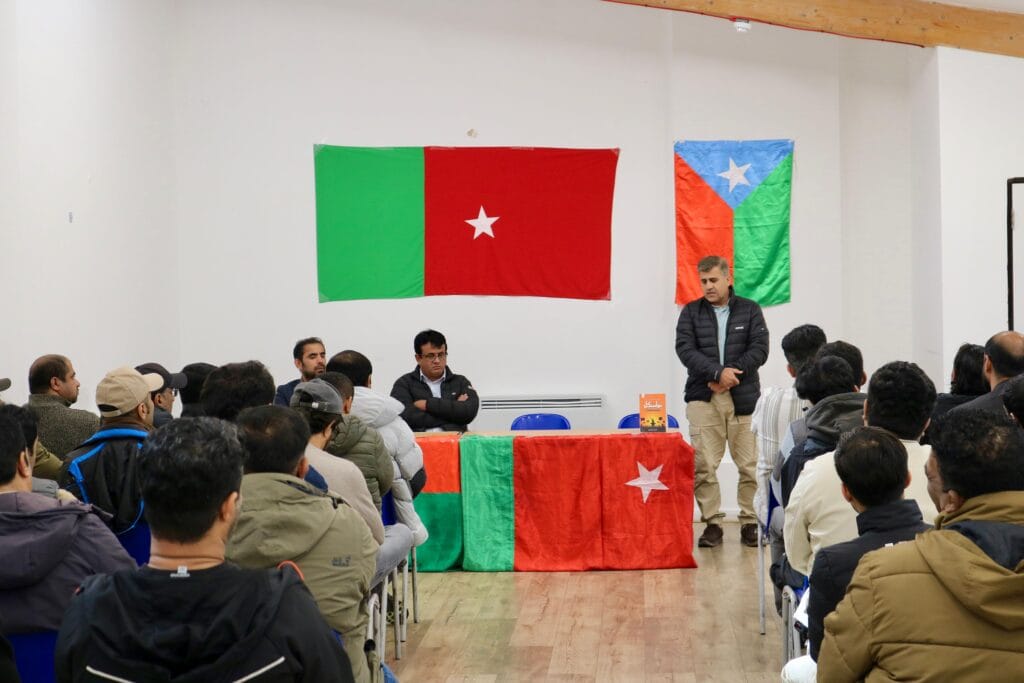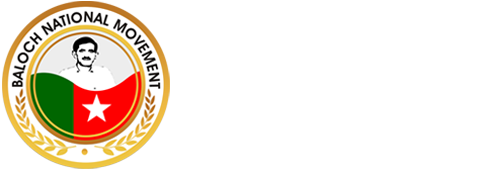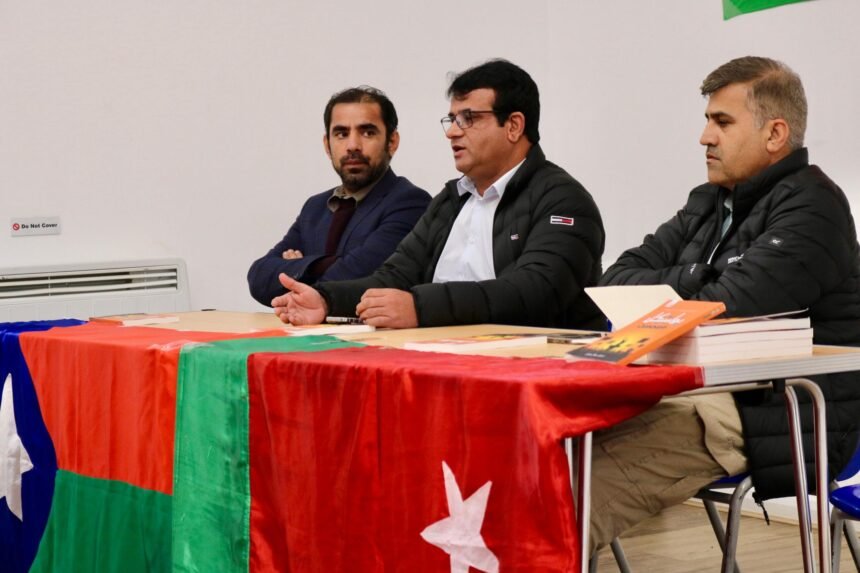Dr. Naseem Baloch, Chairman of the Baloch National Movement (BNM), emphasized the need to strengthen discipline and coordination between the party’s subsidiary institutions and central leadership. He highlighted the importance of centralization within the party and discouraged individual activism, urging members to act collectively within the party’s discipline. While individual thinking is valued, he stressed that every member must follow the party’s code of conduct.
He expressed these views in a meeting with BNM members in the UK. The meeting, chaired by Dr. Naseem Baloch, was divided into three parts. The book ” Political Management ” by BNM Senior Vice Chairman Dr. Jalal Baloch was launched in the first part. This book is part of BNM’s capacity-building series.
Naseem Abbas, Vice President of BNM’s UK Chapter, conducted the meeting. Dr. Naseem Baloch, along with Junior Joint Secretary Hasan Dost Baloch, BNM Foreign Department Coordinator Faheem Baloch, Deputy Coordinator Niaz Baloch, and BNM UK Chapter President Manzoor Baloch, launched the book.

Dr. Naseem Baloch also discussed the importance of discipline in organizational matters, stating that BNM is a democratic party, but the democratic process must follow institutional procedures. He explained that any member proposing new methods, ideas, or policies must follow these principles. Every idea is first discussed in the unit, then it moves to the chapter or zone and finally reaches the Central Committee, where it becomes official party policy. No individual opinion can be considered policy until approved by the Central Committee.
He pointed out that opinions shared on social media are often mistaken for party policy, but clarified that the official policy is determined solely by the Central Committee. In both parties and nations, progress is made through hierarchical systems. Just as a country is governed by a constitution and laws, a party is structured by its rules and discipline.
Dr. Naseem Baloch also spoke about the struggles of the Baloch Yakjehti Committee (BYC) and the Pashtun Tahafuz Movement (PTM), praising their efforts. He said that Pakistan treats both Baloch and Pashtun nations similarly, working to weaken the roots of nationalism and ideological politics in both nations. Pakistan has been more successful in cultivating anti-nationalist elements in Pashtun society than in Baloch society, with religious extremism and tribal systems playing a stronger role. However, PTM is resisting these forces with Pashtun nationalist thought and can only succeed by staying true to its cause. The forces that once promoted Pashtun nationalism are now in the Pakistani parliament, and their shift in direction has become an obstacle to PTM’s goals.
He added that the state is targeting PTM and BYC because these two organizations are uniting the Pashtun and Baloch nations, fostering solidarity through a nationalistic mindset.
Dr. Naseem Baloch further noted the rise of patriotism among the Baloch youth and the growing acceptance of the political rights movement’s leadership. While this is a positive development, he urged the younger generation to learn from past experiences rather than disregarding them. Senior activists have spent years in the Baloch struggle and have valuable insights gained from their experiences. The cadres must organize and learn from them. BSO (Azad), BRP, and BMM have faced difficult times, and we are fortunate to still be carrying on the struggle through the platform of BNM. The enemy has taken harsh actions against pro-nationalist activists, imprisoning and killing many, yet their ideas have reached every home in Balochistan.
The Chairman expressed concern over the state’s crackdown on BYC, noting that Pakistan has devised a systematic plan to eliminate the organization. This includes using the Fourth Schedule of the controversial Anti-Terrorism Act (ATA) of 1997, enacted during the Nawaz Sharif era, which gives state institutions the authority to act against activists. By restricting their movements under this law, the state can claim constitutional legitimacy, as those listed in the Fourth Schedule are suspected of terrorism. He emphasized that it is now up to the leadership and cadres in Balochistan to develop policies and strategies that will allow them to continue their activities in the long term.


